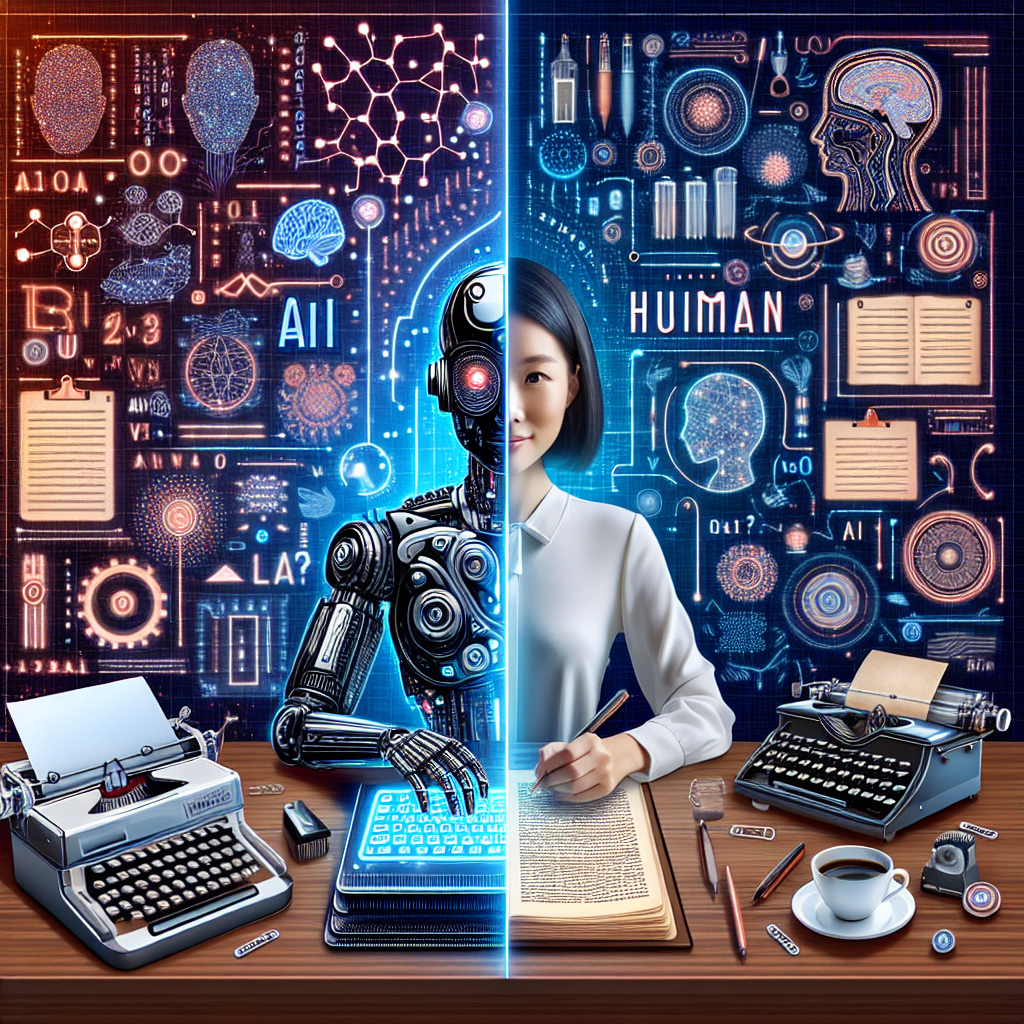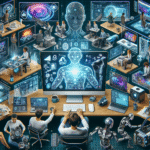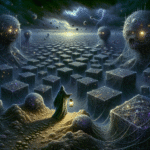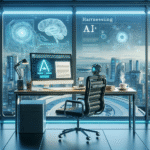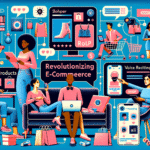The rapid development of artificial intelligence (AI) technology has dramatically transformed various industries, including content creation. As businesses and individuals increasingly turn to AI for generating text, images, and videos, a fundamental question arises: Can AI create better content than humans? This article explores the strengths and weaknesses of both AI and human content creators, taking into consideration factors like creativity, efficiency, quality, and emotional connection.
Understanding AI in Content Creation
What is AI?
Artificial intelligence refers to the simulation of human intelligence in machines programmed to think and learn. In content creation, AI uses algorithms and large datasets to generate text, images, and other forms of media. Widely recognized for its speed and ability to analyze vast amounts of information, AI generates content through techniques like natural language processing (NLP) and machine learning.
AI Content Creation Tools
Numerous AI tools have emerged to assist in content generation. Some prominent examples include:
- OpenAI’s GPT-3: A powerful language model that generates human-like text, often indistinguishable from that written by a person.
- Canva and Adobe’s AI Features: Tools that use AI to assist in creating graphics and videos by automating design elements.
- Jasper and Copy.ai: Platforms specifically designed for marketers, enabling them to create blog posts, advertisements, and social media content efficiently.
Strengths of AI in Content Creation
- Speed and Efficiency: AI can produce large volumes of content quickly, making it an attractive option for companies needing regular material.
- Cost-Effectiveness: Leveraging AI can reduce labor costs associated with human writers, especially for tasks requiring bulk content generation.
- Data-Driven Insights: AI can analyze data trends and audience preferences to create content optimized for engagement.
The Human Touch in Content Creation
The Human Advantage
Despite the remarkable capabilities of AI, human content creators possess unique qualities that AI currently cannot replicate:
- Creativity and Originality: Humans think outside the box, capable of generating original ideas and concepts. This creativity is often rooted in personal experiences, emotions, and cultural context.
- Emotional Connection: Human writers can infuse their content with empathy and emotional depth, fostering genuine connections with the audience.
- Nuance and Contextual Understanding: Humans can grasp subtlety and complex meanings, crafting content that resonates on multiple levels.
Limitations of AI
While AI excels at certain tasks, it has inherent limitations:
- Contextual Understanding: AI may struggle to understand nuanced contexts, leading to inaccuracies or a lack of depth in content.
- Originality Issues: AI-generated content is often based on existing data, so it can inadvertently reproduce clichés or fail to introduce genuinely novel ideas.
- Lack of Emotional Insight: AI does not possess emotions, which limits its ability to connect with readers on a personal level.
Comparing Quality of Content
Content Quality Metrics
When assessing which content is of higher quality, several factors should be considered:
- Readability: The ease with which text can be read and understood. AI can produce well-structured sentences, but humans may excel in crafting engaging narratives.
- Audience Engagement: Content that resonates with readers often performs better. Here, human writers can use their emotional intelligence to create compelling stories.
- Creativity: Innovative and imaginative ideas typically appeal more to audiences. Human creators frequently introduce unique perspectives that captivate interest.
Real-World Examples
- Marketing: Many brands have successfully utilized AI for content generation but still rely on human creativity for storytelling to enhance brand identity and connect with consumers emotionally.
- Journalism: While AI can cover data-heavy topics like sports or finance, investigative journalism requires human intuition and ethical decision-making that AI currently lacks.
The Future of Content Creation
Collaborative Synergy
The future likely lies in a collaborative approach where AI tools assist human content creators. By harnessing the strengths of both, individuals can achieve higher productivity while maintaining the creativity and emotional richness that human input brings.
Ethical Considerations
As AI continues to evolve, ethical questions arise, including issues of plagiarism, misinformation, and the potential for dehumanizing content. Striking a balance between AI efficiency and human touch will be crucial in shaping future content standards.
Conclusion
In the ongoing debate of AI vs. human content creators, each brings unique strengths to the table. AI excels in efficiency, speed, and data analysis, while humans offer creativity, emotional insight, and a nuanced understanding of context. Rather than viewing AI as a competition, the most effective future may involve a hybrid approach, leveraging the advantages of both AI and human creators to produce compelling and high-quality content.
